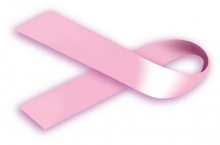All of these women scheduled plastic surgery and their cancers were detected during their pre-surgical work-up. Several were diagnosed by mammogram; another had a mass that had been dismissed; one traveled from a country with socialized healthcare where she had been waiting months for an MRI; and on another I biopsied a suspicious lump.
What does this mean for them? It meant breast removal rather than breast enhancement and becoming a cancer patient. For some it will mean chemotherapy. But for all it will mean a better chance at a cure than if it had not been diagnosed.
What do I mean? Over the years, pre-surgical testing has revealed patients of mine with abnormal clotting problems, kidney disease, impending cardiac events, colon cancer, and a variety of other problems. Those patients thereby had treatment initiated sooner, which gave them a better chance at life.
But it should never be forgotten that plastic surgery itself has significant risks, including even death. According to the AAAASF, the premiere accrediting body of operating rooms, there were 23 deaths in 1.14 million plastic surgery procedures.
The American Society for Aesthetic Plastic Surgery (ASAPS) is focused on lowering that number. Research funded by the Aesthetic Surgery Education and Research Foundation (ASERF), provides data upon which to upgrade those standards. As knowledge grows and operating room technology develops, AAAASF updates its requirements.
No data is collected on problems found during the preoperative work-up, but in speaking with colleagues it is clear that my experience is typical amongst board-certified plastic surgeons. One can only imagine how many diseases were discovered during preoperative clearances on those 1.1 million patients. No doubt there were more than 23. Conscientious plastic surgeons save lives.
This emphasizes the importance that plastic surgeons be well-trained. Did you know that a plastic surgeon does not even have to be board certified? The American Board of Plastic Surgery (ABPS) is the only board that counts. Fortunately there is an easy way for patients to check on their doctor here
It is crucial that a surgeon have a deep knowledge of the anatomy and pathology of the body part upon which they are operating; no one should do cosmetic breast surgery unless they are experienced treating breast cancer. While plastic surgeons are portrayed as artists and sculptors, all American Society for Aesthetic Plastic Surgery (ASAPS) surgeons are thoroughly trained in breast augmentation surgery and are steeped in knowledge of breast cancer.
In any case, no one should be waiting for plastic surgery to be screened for cancer. Indeed saving these lives is not a justification for plastic surgery. Everyone needs a great internist, and all must follow through on their doctor’s advice. Living in denial only results in a greater problem in the future. Your doctor won’t force you to return to their office for a follow-up. You are responsible.
My quixotic view is that our culture will evolve to the point that we speak to one another as much about health issues as we do about Snooki and Honey Boo Boo.

In the past year, I’ve diagnosed six patients with breast cancer. That might not sound like a lot for a doctor, but I am a plastic surgeon. This isn’t supposed to happen. My patients see me voluntarily and our interactions are full of happiness and optimism. It is wrenching to tell just one patient they have cancer, so this cluster has overwhelmed me.

